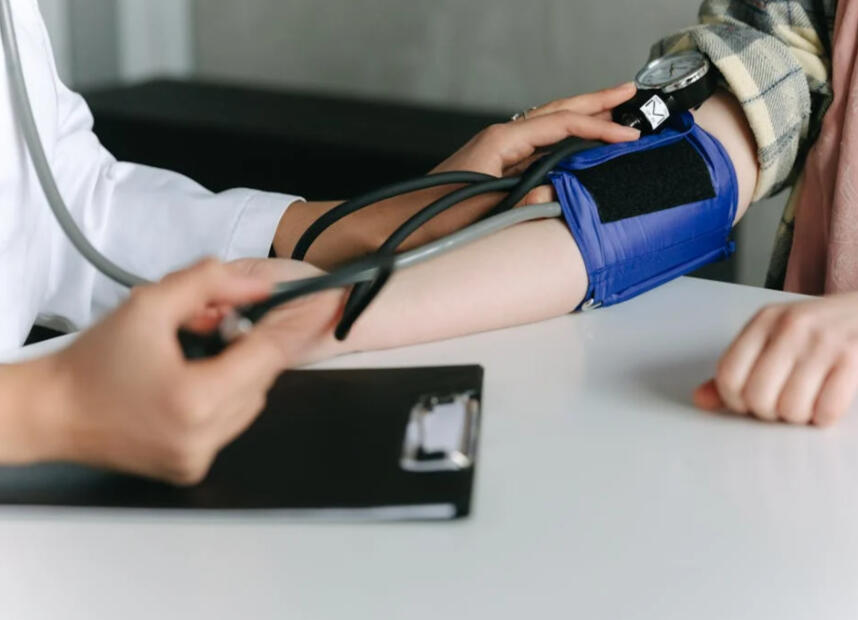Heart Doctor
Heart Doctor: Essential Guide to Cardiovascular Health
Heart doctors, also known as cardiologists, play a crucial role in keeping our hearts healthy. They are medical experts who specialize in diagnosing and treating heart problems.These skilled physicians use advanced tools and techniques to care for patients with various cardiovascular issues.Cardiologists work in hospitals, clinics, and private practices. They see patients of all ages, from young children to older adults.Their job involves performing tests, prescribing medicines, and sometimes doing procedures to fix heart problems.Heart health is important for everyone. Regular check-ups with a heart doctor can help catch issues early. They can also give advice on how to keep your heart strong through diet, exercise, and other healthy habits.Key Takeaways
- Cardiologists are experts in heart health and treatment
- Heart doctors use advanced tools to diagnose and treat heart problems
- Regular check-ups with a cardiologist can help maintain heart health


Understanding Cardiology
Cardiology is the medical specialty focused on heart health. It involves studying the heart's structure, function, and diseases. Cardiologists use various tests to diagnose and treat heart problems.Heart Anatomy and Physiology
The heart is a muscular organ about the size of a fist. It pumps blood through the body's blood vessels. The heart has four chambers: two atria on top and two ventricles below.Blood flows from the body into the right atrium, then to the right ventricle. From there, it goes to the lungs to pick up oxygen. The oxygen-rich blood returns to the left atrium, then the left ventricle. Finally, it's pumped out to the rest of the body.The heart beats about 100,000 times per day. This adds up to about 35 million beats in a year.A healthy adult heart pumps about 2,000 gallons of blood daily.
Cardiovascular Diseases
Heart disease is a leading cause of death worldwide. Common heart problems include:- Coronary artery disease
- Heart valve disorders
- Arrhythmias (irregular heartbeats)
- Heart failure
- High blood pressureRisk factors for heart disease include:- Smoking
- High cholesterol
- Obesity
- Lack of exercise
- Diabetes
- Family historyMany heart problems can be prevented or managed with lifestyle changes and medication. In some cases, surgery may be needed.Diagnostic Tests in Cardiology
Cardiologists use many tests to check heart health. These include:Electrocardiogram (ECG): Records the heart's electrical activity.Echocardiogram: Uses sound waves to create images of the heart.Stress test: Checks how the heart works during physical activity.Cardiac catheterization: Looks inside the heart's blood vessels.CT scan and MRI: Create detailed images of the heart.Blood tests can also help diagnose heart problems. They check for substances that may show heart damage or risk.These tests help doctors find heart issues early. This allows for faster treatment and better outcomes.


Roles and Responsibilities of a Cardiologist
Cardiologists play a vital role in diagnosing and treating heart problems. They use their expertise to help patients with various heart conditions live healthier lives.Patient Consultations
Cardiologists meet with patients to discuss heart health concerns. They review medical histories and perform physical exams.These doctors also order and interpret tests like:- Electrocardiograms (ECGs)
- Echocardiograms
- Stress tests
- Blood workBased on results, cardiologists explain diagnoses to patients. They answer questions about heart conditions in simple terms.Cardiologists also give advice on lifestyle changes to improve heart health.Treatment Planning and Management
Cardiologists create treatment plans for heart issues. They may prescribe medications to manage conditions like:- High blood pressure
- High cholesterol
- Irregular heartbeatsFor some patients, cardiologists recommend procedures or surgeries. They work with surgeons to plan these treatments.Cardiologists also monitor patients after procedures.These doctors help patients manage long-term heart conditions. They track progress and adjust treatments as needed. Cardiologists also work to prevent future heart problems in at-risk patients.
Advancements in Cardiac Care
Heart doctors now use cutting-edge tools and methods to treat heart problems. These new approaches help patients live longer and feel better.Innovative Surgical Procedures
Minimally invasive heart surgery is a big step forward. Doctors make small cuts instead of opening the chest. This leads to less pain and faster healing for patients.Robotic surgery lets heart doctors work with great precision. Tiny tools controlled by the surgeon move smoothly inside the body. This method works well for fixing heart valves and blocked arteries.3D printing helps plan complex heart operations. Doctors can make exact models of a patient's heart. This lets them practice tricky steps before the real surgery.Emerging Therapies and Medications
New drugs target specific heart problems more effectively. Some medicines lower bad cholesterol better than older ones. Others help control heart rhythm issues with fewer side effects.Stem cell therapy shows promise for healing damaged heart tissue. Doctors inject special cells that may grow into healthy heart muscle. This could help people recover from heart attacks.Gene therapy is an exciting area of research. Scientists work on ways to fix faulty genes that cause heart disease. This might prevent or treat inherited heart conditions in the future.Wearable devices now track heart health day and night. These gadgets can spot problems early and alert doctors. This helps patients get quick care when needed.Lifestyle and Heart Health
A heart-healthy lifestyle involves key habits and choices that protect cardiovascular health. These include smart eating and regular physical activity.Preventative Strategies
Quitting smoking is one of the best things you can do for your heart. Smokers have a much higher risk of heart disease. Even secondhand smoke is dangerous.Managing stress helps your heart too. Try relaxation techniques like deep breathing or meditation.Getting enough sleep is also important. Most adults need 7-9 hours per night.Limiting alcohol can lower blood pressure. Men should have no more than 2 drinks per day. Women should stick to 1 drink or less.Regular check-ups let your doctor spot problems early. Keep tabs on your blood pressure, cholesterol, and blood sugar.Nutrition and Exercise
A heart-healthy diet focuses on fruits, vegetables, whole grains, and lean proteins. Limit saturated fats, trans fats, salt, and added sugars.Some heart-smart foods include:- Fatty fish (salmon, tuna, mackerel)
- Nuts and seeds
- Berries
- Leafy green vegetables
- Whole grains
- Beans and lentilsRegular exercise strengthens your heart muscle.Aim for at least 150 minutes of moderate activity per week. This could be brisk walking, swimming, or biking.Strength training is good for your heart too. Try to do muscle-building exercises at least twice a week.Start slowly if you're not used to exercise.Talk to your doctor before beginning a new fitness plan.
